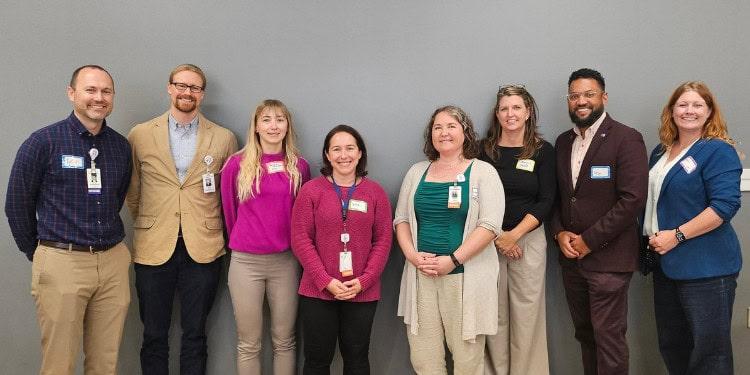
As we enter the second year of our groundbreaking grant-funded project to integrate behavioral health services into primary care, Hennepin Healthcare is proud to reflect on the tremendous strides made since the launch of this initiative in December 2023.
The $9.7 million award, a partnership with the Minnesota Department of Human Services (MN DHS) and funded by Substance Abuse and Mental Health Services Administration (SAMHSA), has already transformed care delivery across five clinics, improving access to behavioral health resources for our patients and communities.
Over the past year, we have successfully implemented the Collaborative Care Model (CoCM), bringing together primary care providers, behavioral health clinicians, and consulting psychiatrists to offer a comprehensive, team-based approach to behavioral health care in some of our primary care areas.
"Meeting the patients where they're at and helping them, you know, here and now instead of saying go wait on a list for six months. So at least getting that connection and knowing that you are making some impact right away to make sure patients feel like somebody's there for them," said a behavioral health clinician. This model has not only improved the quality of mental health and substance use disorder care but has also made these services more accessible, directly addressing health disparities within the community.
Key achievements include:
- Increased access to behavioral health services: The model has made mental health care more readily available to patients, reducing wait times and improving overall satisfaction.
- Improved patient outcomes: Collaborative Care has demonstrated its effectiveness in managing conditions such as depression, anxiety, and substance use disorders.
- Enhanced provider satisfaction: Our providers have reported increased job satisfaction and a greater sense of accomplishment as they witness the positive impact of their work.
Read the Promoting the Integration of Primary and Behavioral Healthcare Collaborative Care Model Annual Report. A key success of this project has been the formation of strong partnerships, both within Hennepin Healthcare and with our broader community.The collaboration has been remarkable, from our behavioral health clinicians to our dedicated primary care teams, allowing us to provide more holistic, culturally sensitive care.
The program's initial successes extend beyond the clinic work being done and ripple throughout our organization as the support for this rollout has been made possible through strong partnerships with Hennepin Healthcare Research Institute, Hennepin Healthcare Foundation, Psychiatry, Information Services, and Technology, PR/Marketing, Addiction Medicine, and various clinic leadership and beyond. "We're really putting the 'collaborative' in implementing our Collaborative Care Model services throughout our entire system. It has been fantastic working with so many of our internal partners helping this project come to fruition," said Frank Jadwin, Collaborative Care Model Project Manager.
This project also has extensive involvement with our Advocacy and Public Policy team, who are organizing partnerships throughout the state and leading the charge in the legislature to make CoCM a Medicaid benefit in Minnesota. If successful, we hope to further expand the CoCM work at Hennepin Healthcare and assist other health systems throughout the state with their implementation to address the shortage of available behavioral health services, demonstrating that Hennepin Healthcare is a leader in innovation in our state. Frank Jadwin, the Program Manager of Collaborative Care Model, testified in the House Human Services Committee in support of H.F. 958. The bill received support from committee members and was laid over for possible inclusion in the committee's omnibus budget bill proposal. Watch Frank's testimony here.



